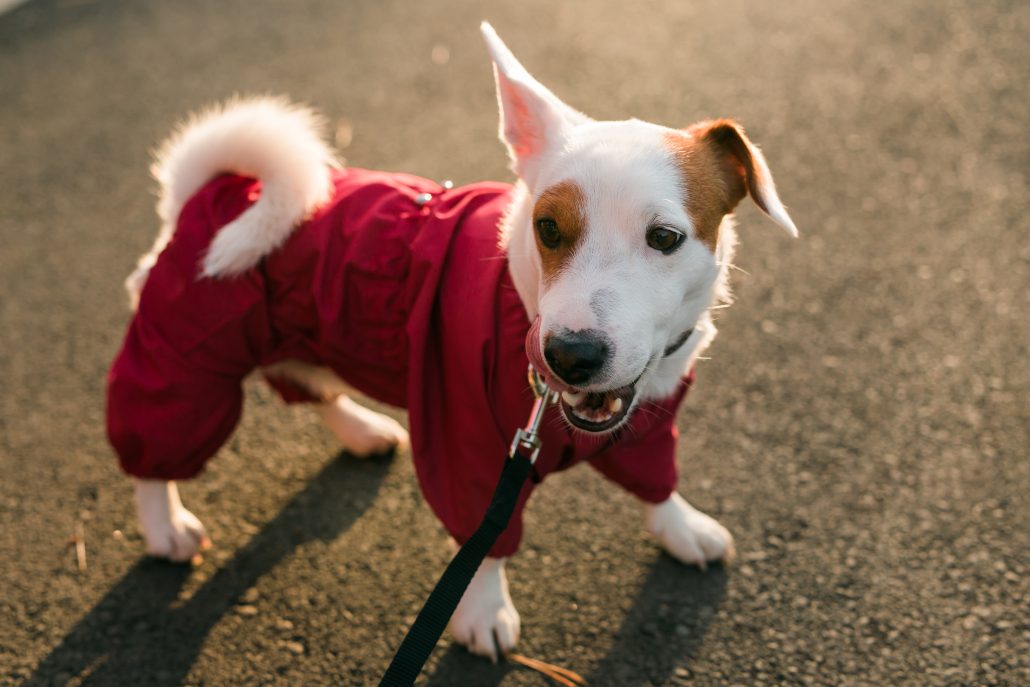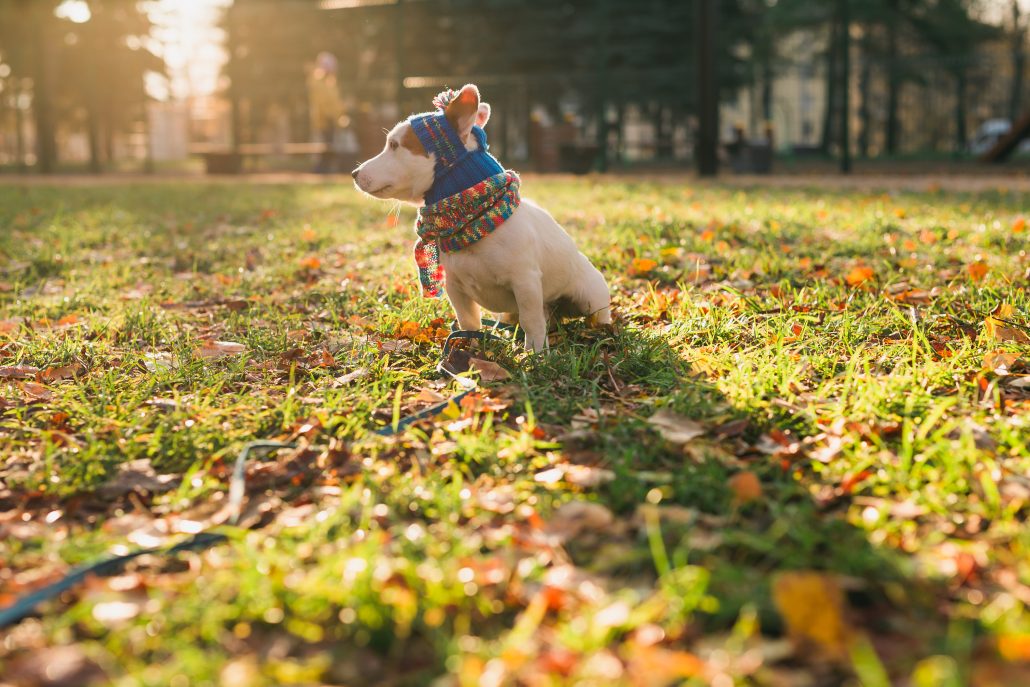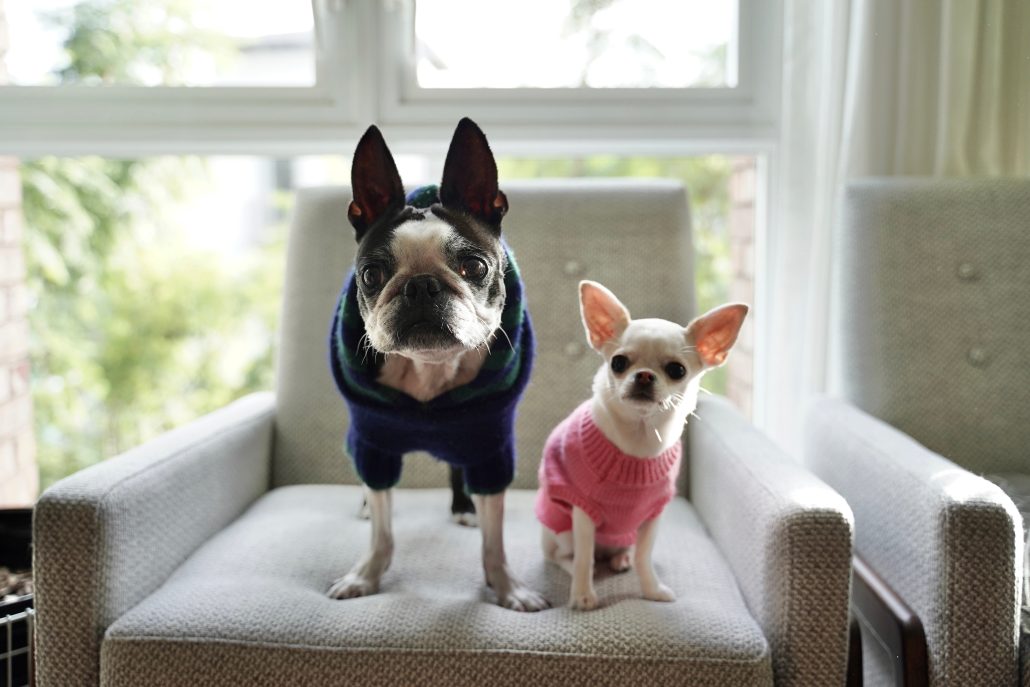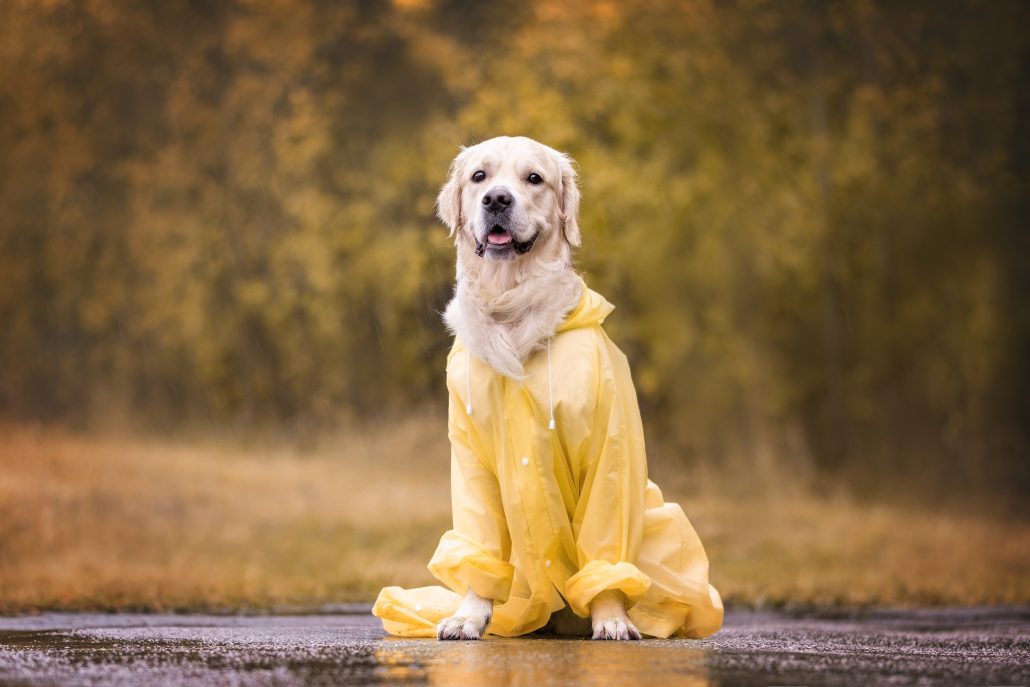As the winter season approaches, we tend to bundle up to stay warm and cozy. But have you ever wondered if your furry friend needs some extra warmth too? While some pet owners may think it’s unnecessary or even silly to dress up their dogs, there are actually many benefits to doing so during the winter months.
In this blog post, we’ll explore the many reasons dog owner dress up their companions, the pros and cons of doing so and how to decide if your dog needs a winter coat, and offer alternatives to keep your pup warm and comfortable this season.

Why Do We Dress Up Our Pups?
Dogs are a man’s best friend, and as a result, many pet owners tend to take care of our companions just as much as we would take care of ourselves – from regular pet check-ups and grooming to lots of love and affection!
Dressing up our dogs is no exception and offers both aesthetic and practical reasons why we dress up our dogs.
Benefits & Advantages
Protection From The Elements
Just like humans, dogs can get cold! This is especially true for dogs with short hair or those that are older or have health conditions.
Dressing up your dog can provide them with the extra warmth and protection they need to stay comfortable and prevent weather-related complications.
Signs that your dog may be feeling cold include shivering, lethargy, and seeking warmth.
Safety and easy identification
Dressing up your dog can also make them more visible and identifiable.
This is especially important when you are out and about and during low light conditions or in areas where it may blend in with its surroundings.
This can help keep them safe and prevent accidents.
Cons & Considerations
Risk of overheating
It’s important to make sure your dog is not overheating while wearing their winter clothing.
Overheating can lead to dehydration and heat exhaustion, which can be dangerous for your furry friend.
Signs of overheating in dogs include excessive panting, drooling, and lethargy.
Restriction of movement
Some clothing items may be too tight or not fit properly, which can restrict your dog’s movement and cause discomfort.
It’s important to choose clothing that fits well and allows your dog to move and breathe comfortably.

Does Your Dog Need A Winter Coat?
Before you go out and buy your pup the biggest, fluffiest coat or sweater, there are a number of factors to consider, such as size, breed, age and more. By taking all these factors into consideration, you can help ensure your furry friend stays warm, comfortable, and safe during the colder months.
Location:
Where you live and the amount of time you spend outside will also determine whether your pup needs a winter sweater. If you live in an area with colder temperatures, snow, and wind, your dog will likely need more protection from the elements. Similarly, if you spend a lot of time outside with your dog, whether it’s going for walks, hikes, or playing in the snow, they may need a winter sweater and booties to stay comfortable and warm.
Size:
The size of your dog can play a role in determining if they need a winter coat. Larger dogs generally produce more body heat due to their larger muscle mass and are therefore less likely to require a jacket to keep warm. Smaller dogs often struggle to retain body heat and can benefit greatly from the extra insulation provided by a winter coat.
Breed & Fur Type:
In addition to size, breed also plays a role in whether your dog needs a coat. Breeds such as huskies and malamutes have thick fur coats that are naturally designed to keep them warm in cold weather. and are less likely to need a sweater during winter. On the other hand, breeds such as Chihuahuas and Greyhounds have shorter hair that may not provide enough insulation, making them more susceptible to the cold.
Age & Health:
Your dog’s general health can also determine whether or not they need a winter sweater. It’s important to keep in mind that dogs with underlying health issues may need special attention during the winter months to prevent any adverse effects on their health.
Dogs who are elderly or sick are generally more sensitive to extreme temperatures, and may require more insulation. If your pup suffers from arthritis or other joint conditions, a coat can help make them more comfortable.
Personal Preferences:
In addition to considering the above factors, it’s important to pay attention to your dog’s behaviour and body language to determine if they are comfortable in the cold. Some pups are simply more sensitive to colder temperatures, so If your dog is shivering, whining, or seems hesitant to go outside, they may be too cold and require a winter coat to stay warm and comfortable.

Tips For Choosing The Right Coat
When it comes to selecting a winter coat for your dog, there are a few tips to keep in mind:
- Make sure the coat fits properly, without being too tight or too loose. A poorly fitting coat can cause discomfort, restrict movement, and can even be a safety hazard.
- Look for a coat that covers your dog’s chest and belly, as these areas are particularly vulnerable to the cold.
- Choose a coat made of a warm, waterproof material that will keep your dog dry and comfortable in wet or snowy conditions.
- Consider adding reflective material to the coat, to increase your dog’s visibility during walks in the evening or on darker winter days.
Alternatives To Keeping Your Dog Warm
Bathing
If you’re hesitant to dress up your dog in clothing this winter or they simply cannot tolerate a sweater, there are other ways to keep them warm and comfortable. Bringing them inside, providing a cozy bed with warm blankets, and using heating pads or lamps can help keep your dog warm during colder weather.
Regular exercise is another excellent way to keep your dog’s body temperature up while providing mental stimulation and physical activity. Exercise is especially crucial during the winter months when dogs may not get as much outdoor time as they’re used to.
It’s also essential to protect your dog’s paws from the cold weather, as cold surfaces can cause dryness and discomfort. Using dog boots or paw wax can help protect their paws from the elements.
In addition to these methods, providing your dog with extra nutrition during the winter months can help keep their body in good condition and make it easier for them to regulate their body temperature. Speaking to your vet can help to determine the best diet and supplement options for your furry friend.

Don't Let the Cold Get to Your Dog
As pet owners, it is important to prioritise your dogs comfort during the cold winter months. While dressing up your dog can provide warmth and protection, it’s crucial to carefully consider whether it’s the best option for your furry friend. Weighing the pros and cons, along with your dog’s breed, size, age, and health, can help you make an informed decision.
If you’re uncertain about whether or not your dog needs a winter coat, get in touch with The House Call Vet. Our team of experienced veterinarians can provide valuable guidance and advice to help you keep your furry friend happy, healthy, and comfortable throughout the winter season.

